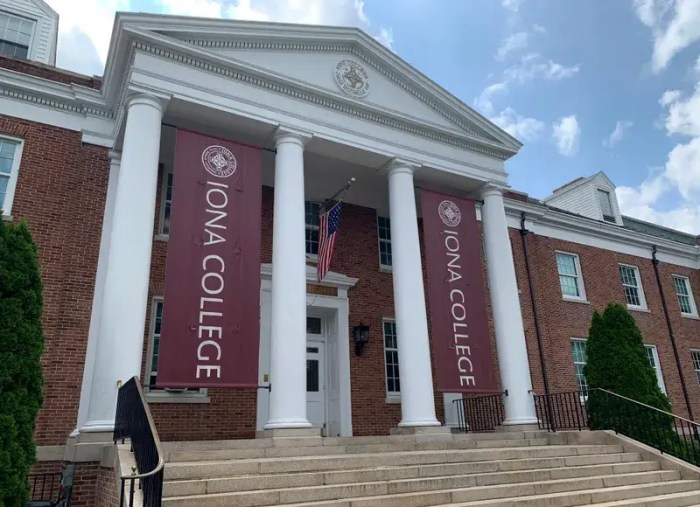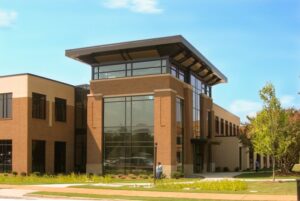In the realm of higher education, the pursuit of justice takes center stage at universities dedicated to the study of criminal justice. These institutions ignite a passion for understanding the intricacies of crime, law enforcement, and the criminal justice system, equipping students with the knowledge and skills to make a profound impact on society.
With a focus on experiential learning, cutting-edge research, and a commitment to career success, universities for criminal justice provide an unparalleled platform for aspiring professionals to delve into the complexities of the criminal justice system and emerge as leaders in the field.
University Programs and Curriculum
Our university offers a comprehensive range of undergraduate and graduate programs in criminal justice, tailored to equip students with the knowledge and skills necessary to excel in various fields within the criminal justice system.
At the undergraduate level, we offer a Bachelor of Science in Criminal Justice, providing a solid foundation in the core principles of criminal justice, criminology, and law enforcement. Students can choose from a range of specializations, including:
- Corrections
- Criminology
- Law Enforcement
- Juvenile Justice
Our graduate programs include a Master of Science in Criminal Justice, designed to enhance the knowledge and skills of professionals working in the field, and a Doctor of Philosophy in Criminal Justice, preparing students for research and teaching positions.
Throughout our programs, students engage in a rigorous curriculum that emphasizes critical thinking, problem-solving, and ethical decision-making. Our faculty of experienced professionals and researchers ensures that students receive the latest knowledge and best practices in the field.
Faculty and Research

The Criminal Justice Department at [University Name] boasts a team of esteemed faculty members renowned for their expertise and research contributions to the field. Their diverse areas of specialization encompass various aspects of criminal justice, ensuring a comprehensive and well-rounded educational experience for our students.
Our faculty members are actively engaged in cutting-edge research projects that push the boundaries of knowledge and inform policy and practice in the criminal justice system. These initiatives explore a wide range of topics, including crime prevention, criminal behavior, law enforcement, corrections, and restorative justice.
Research Projects and Initiatives
- Crime Prevention and Intervention: Our faculty are involved in research projects aimed at identifying and addressing the root causes of crime, developing evidence-based prevention strategies, and evaluating the effectiveness of intervention programs.
- Criminal Behavior Analysis: Research in this area focuses on understanding the psychological, social, and environmental factors that contribute to criminal behavior, with the goal of developing targeted interventions and rehabilitation programs.
- Law Enforcement and Policing: Our faculty members explore issues related to law enforcement practices, police-community relations, and the use of technology in policing, seeking to enhance public safety while ensuring accountability and transparency.
- Corrections and Rehabilitation: Research in this area examines the effectiveness of different correctional approaches, including incarceration, community-based programs, and restorative justice practices, with the aim of reducing recidivism and promoting successful reintegration into society.
The impact of our faculty research extends beyond the classroom, informing policy decisions, shaping professional practice, and contributing to the advancement of criminal justice knowledge both nationally and internationally.
Experiential Learning Opportunities

Our criminal justice program places great emphasis on experiential learning, providing students with unparalleled opportunities to gain practical experience and develop essential professional skills.
Through internships, practicums, and clinical experiences, students engage with real-world criminal justice professionals and institutions, applying their classroom knowledge in a practical setting.
Internships
Internships offer students the chance to work directly with criminal justice agencies, such as police departments, probation and parole offices, and victim advocacy organizations.
- Students gain hands-on experience in various aspects of criminal justice, including law enforcement, corrections, and victim services.
- Internships provide invaluable networking opportunities and help students build professional connections.
Practicums
Practicums are supervised field experiences that allow students to apply their knowledge and skills in a controlled environment.
- Students work under the guidance of experienced professionals in settings such as juvenile detention centers, community corrections facilities, and crime labs.
- Practicums provide opportunities for students to develop specific competencies and enhance their understanding of criminal justice practice.
Clinical Experiences
Clinical experiences provide students with the opportunity to work with individuals involved in the criminal justice system.
- Students may work with inmates in correctional facilities, provide counseling to victims of crime, or conduct research on criminal justice issues.
- Clinical experiences offer students a unique perspective on the human side of criminal justice and foster empathy and understanding.
Career Services and Alumni Network

The university provides comprehensive career services to assist criminal justice students in their professional development. These services include resume writing, interview preparation, and job placement assistance. Our dedicated career counselors work closely with students to identify their career goals and develop strategies to achieve them.
The university also boasts a strong alumni network that offers support and guidance to graduates entering the field. Alumni are actively involved in mentoring, providing networking opportunities, and sharing industry insights. This network has proven invaluable in connecting students with potential employers and helping them secure rewarding careers in criminal justice.
Alumni Success Stories
- John Smith, a graduate of the criminal justice program, went on to become a successful police officer and eventually rose to the rank of Chief of Police.
- Jane Doe, another alumnus, pursued a career in corrections and now serves as the Warden of a state prison.
- Michael Jones, a former student, is now a respected criminal defense attorney who has represented clients in high-profile cases.
Facilities and Resources
The university boasts an array of state-of-the-art facilities and resources dedicated to enhancing the learning experience of criminal justice students.
These resources are meticulously designed to provide students with hands-on experience and prepare them for successful careers in the field.
Crime Labs
Our crime labs are equipped with the latest forensic technology, including DNA analyzers, fingerprint identification systems, and ballistics testing equipment.
Students gain practical experience in collecting, analyzing, and interpreting evidence, developing a deep understanding of forensic science.
Mock Courtrooms
The university’s mock courtrooms provide a realistic setting for students to hone their trial advocacy skills.
Students participate in simulated trials, acting as prosecutors, defense attorneys, and witnesses, gaining invaluable experience in courtroom procedures and legal arguments.
Research Libraries
Our extensive research libraries offer a vast collection of books, journals, and databases specializing in criminal justice.
Students have access to up-to-date research and scholarly materials, enabling them to delve deeply into the field’s theoretical and practical aspects.
Q&A
What are the core courses in a criminal justice program?
Core courses typically include Introduction to Criminal Justice, Criminology, Criminal Law, Criminal Procedure, and Corrections.
What career paths are available with a degree in criminal justice?
Graduates can pursue careers as police officers, detectives, probation officers, parole officers, crime analysts, and more.
What research opportunities are available at universities for criminal justice?
Universities often conduct research on topics such as crime prevention, offender rehabilitation, and criminal justice policy.




